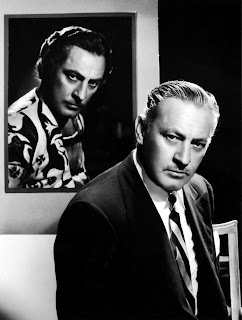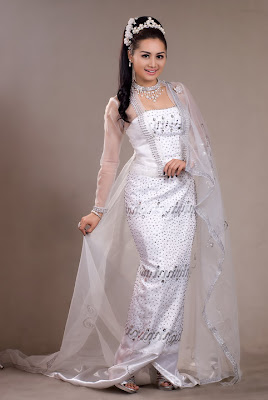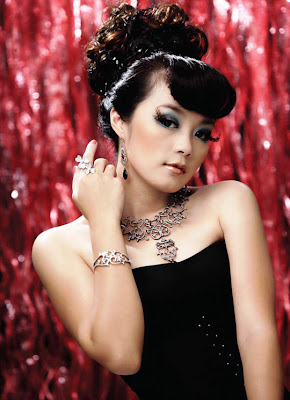Aku kembali ke tahun itu, pertengahan tahun 2010, berjalan menyisiri gedung kuliah fakultas kedokteran gigi dan melihat anak laki-laki berambut pendek turun. Dia mengenakan ransel hitam, agak usang, dan kelihatan penuh. Pandangan matanya berpendar, mungkin sedang menghayati lagu yang ia dengarkan, melalui earphone, entah itu punya sendiri atau hanya meminjam, tetapi dia kelihatan sedang sangat menikmati itu.
“Hei!” Panggilku.
Dia menoleh, diam berdiri.Earphone masih ditelinganya. Aku berlari menghampirinya. Lebih tepatnya, mempercepat langkah.
“Ada apa, Pak?” Tanyanya. Salah satu earphone dilepaskannya dari telinga.
“Tunggu sebentar, kamu mau kemana?” Aku balik bertanya. Keningnya mengerut. Kini mematikan music player di handphonenya. Dia memandangiku curiga.
“Sekarang kan jam makan siang. Mau pergi makan nih. Di kantin.” Jawabnya dengan ekspresi aneh. “bukan di kantin sih, di warung netral, diseberang jalan ini.”
Dia menunjuk jalan diseberang fakultas. Aku memperhatikannya baik-baik, rambut yang tidak disisir rapi, celana jins pudar, dan tali sepatu yang tidak diikat. Agaknya dia sadar diperhatikan terus dari tadi. Ekspresi wajahnya jadi berubah. Semakin menambah aneh raut mukanya, yang cenderung biasa-biasa saja. Aku sedikit terganggu dengan tatapannya itu.
“Kenapa wajahmu begitu?” Tanyaku. “kayak orang bodoh saja?”
“Hah?” dia mundur menjauhkan diri. Sorot matanya penuh tanda Tanya. Aku sudah memberi kesan pertama yang kurang baik. Tapi aku harus menyelesaikan sesuatu disini. Ada yang harus kulakukan di tahun ini. Penting untuk masa depan. Dunia. Duniaku sendiri. Tapi aku tidak tahan. Benar-benar tidak dapat kutahan emosiku untuk mengomentari rambutnya.
“Rambut ini.” Kataku sambil mengacak-acak rambutnya. Dia sigap mengeyahkan tanganku dari kepalanya. Tatapannya waspada. Bahunya tegang, dan dia pasang kuda-kuda. Aku tahu betul, dia tidak menguasai satu pun ilmu bela diri. Jadi mengapa mesti pasang kuda-kuda seperti itu. Apa dulu aku memang sering berbuat konyol seperti ini?
“Mestinya rambut itu kamu rapikan sedikit.” Kataku sambil tersenyum. Dia memegang rambutnya dan memandangku dengan tatapan jengkel.
“Cewek itu suka yang rapi.” Kataku lagi.
“Haa, apaan?” gerungnya. “terlebih lagi, Bapak siapa?”
Rasa hormat sedikit berkurang dari nada suaranya. Aku maklum, tapi identitas tentang siapa diriku harus dirahasiakan. Itu peraturan tertulis dari polisi waktu. Aku dari tadi terus tergoda untuk bicara banyak hal, bicara tentang masa depan, bicara tentang wanita-wanita yang bakal dia temui nantinya. Tapi itu larangan hukum. Ah, bagaimana kalau sedikit saja. Aku mahal-mahal datang kesini. Kebetulan ini tahun 2010, aku ingat dulu sedang berusaha mendekati seseorang. Dengan semangat masa muda aku pun melanggar sedikit hukum waktu.
“Siapa aku? Haha, Ga perlu tahu. Gimana usaha PDKT mu?” Aku berkata seperti itu sambil tertawa jahil. Pasti dia heran mengapa aku bisa tahu tentang hal itu. Ini asyik.
“Haa? Ngomong apa sih?” Wajah bingungnya makin terlihat aneh. “sudah ya Pak, teman-temanku udah nunggu.”
Teman-teman? Aku kembali mengingat beberapa rombongan temanku yang sering makan di warung itu dulu. Siapa saja, aku ingat beberapa, Rezi yang sekarang sudah jadi guru besar di UI, dan.. Fadil. Terakhir kali Fadil kuhubungi, dia sedang liburan di marseille. Dia makin sukses saja. Ridwan, Mike, Putra. Oh ia mereka juga.
“Teman-temanmu itu, salah satunya Rezi kan?
Dia diam.
“Bapak tahu Rezi?” dia bertanya takjub.
“Yaa, sedikit sih.” Jawab gue bokis. “Aku tahu dia itu penggemar white soes and the couples company."
“Wuaa, aku ngerti sekarang. Bapak itu saudaranya Rezi yah?” serunya bersemangat.
Melihat responnya, tiba-tiba aku jadi rindu dengan luapan semangat seperti ini. Salah satu kebanggaanku dulu adalah semangat persahabatan yang tadi dia tunjukan. Hanya dengan sedikit informasi tentang temannya, dia langsung bisa membuka diri hingga ekspresi jengkelnya tadi menghilang. Itu adalah kebiasaan unik yang sekarang sudah ditelan rutinitas kerja.
“Jawab dulu donk pertanyaan tadi. PDKT kamu gimana? haha.”
“PDKT sama siapa? Ah mana ada.”
Aku melihat sekeliling, kebetulan tangga gedung berdekatan dengan kantin fakultas. Kemudian aku menunjuk kearah beberapa anak perempuan yang sedang makan. Dia melongo. Bergantian memandangku dan kumpulan anak perempuan itu.
“Liliput pertama!” kataku. Tersenyum puas. Menikmati setiap raut heran yang keluar dari wajahnya.
“Hiyaaa, Bapak kok tahu semua sih?” Tanyanya. Sikapnya sekarang seperti sikap orang yang sedang berhadapan dengan peramal.
Aku bisa saja menjawab kalau aku dari masa depan, menaiki mesin waktu, dan bilang kalau aku tahu semua yang akan terjadi seterusnya. Aku ingin membuat dia penasaran lebih besar lagi. Tapi selain Hukum waktu yang melarang, apa dia akan percaya begitu saja? Butuh waktu untuk menjelaskannya. Menjelaskan tentang masa depan dengan banyak kemajuan yang tak terduga. Aku tidak punya banyak waktu untuk menjelaskan hal itu. Hukum waktu hanya memberi izin satu jam untuk kembali ke masa lalu, itupun hanya untuk satu kali kesempatan.
“Aku baca blogmu!” kataku kepadanya. Aku rasa itu jawaban yang paling pas. Aku tidak mungkin lupa akan tulisan-tulisan di blog karena sampai sekarang pun aku masih rutin menulis disitu.
“Waw, beneran?” kali ini luapan bahagia memancar dari suaranya. Yah, blogger selalu bahagia tiap kali ada orang yang membaca blognya. “Terima kasih ya.” Ucapnya.
“Terus gimana?” Tanyaku lagi. Aku harap dia bisa terbuka kepada dirinya sendiri. Yang sekarang berada dihadapannya.
“Apanya?”
“Jangan pura-pura bodoh.” Kataku pelan. Kemudian menggiring pandangannya kearah beberapa anak perempuan itu.
“Oh..” Katanya.
“Tahu kan?” Kini kami sama-sama memandang kearah anak-anak perempuan itu. Terpusat pada satu orang. Liliput pertama. “Jangan kayak pengecut. Dekati sana. Sebelum keduluan.”
Dia diam. Wajahnya ragu. Makin kelihatan abstrak.
“Aku gak yakin dia bakalan suka.” Katanya lirih
.
“Coba saja. Nanti menyesal seumur hidup lo.” Kataku sambil menepuk pelan pundaknya. “Apapun hasilnya, yang penting kamu ga menyesal gara-gara telah bertingkah seperti pengecut.”
“Ada ide?” Tanyanya kepadaku. “Aku kehabisan akal untuk mendekatinya.”
Sekarang, malah aku yang tidak bisa berkata-kata. Melihat diri sendiri yang diliputi keputusasaan seperti ini, hhh, benar-benar tidak tahu harus berbuat apa.
“Kamu jangan menyerah!” nasehatku. Cuma itu yang bisa aku katakan.
Dia hanya melenguh pelan. Memasang earphone kembali ketelinganya. “Tenang saja!” katanya datar. “Aku tahu bagaimana cara keluar dari kegalauan.”
Mendengarkan musik. Yah, dulu itu senjataku untuk bertahan dari suasana hati yang buruk. Tentu saja lagu-lagu bertempo tinggi yang melarang pikiran untuk mengeluh terlalu lama.
“Kamu denger apa?” Tanyaku. Sedikit penasaran, kira-kira pada tahun ini aku dulu suka lagu apa ya.
“Younha.” Jawabnya. “tau nggak. ‘Ima Ga daisuki’ Judulnya. Semangat masa muda”
Kemudian aku mendengar dia menyanyikan lagi itu. Fals.
“Let's do whatever we can do only now, Uoo since the tomorrow is a result of what happens today! Uoo Really love it now, Hiiyaa.”
Aku senyum tertahan. Itulah mengapa aku ingin kembali kemasa ini. Ingin melihat semangat yang telah hilang ditelan usia. Ingin melihat bagaimana dulu aku mengatasi semua masalah dengan cara-cara yang kreatif.
Kemudian dia pun asyik terbuai dengan lagu yang didengarnya. Tidak lagi memperhatikan keberadaanku.
“Bertahanlah!” Ucapku berat. Entah dia dengar atau tidak. “Mulai dari sini, banyak hal-hal besar yang akan terjadi.”
Aku kemudian beranjak pergi meninggalkannya.Sadar akan satu hal. Tidak ada yang bisa kita lakukan untuk mengubah apa yang telah kita lalui. Kesalahan yang kita lakukan, ataupun waktu yang kita buang. Bahkan dengan mesin waktu sekalipun.
Aku kembali menaiki mesin waktu. Masih banyak pekerjaan yang harus dilakukan. Dan aku tidak ingin di tahun-tahun kedepannya ada hal yang kusesali, lagi.
. . . . .
*Keterangan.
Aku : Fauzi di 26 Mei 2023 menggunakan mesin waktu.
Dia : Fauzi di 26 Mei 2010
 Well, I say it's the TCM schedule for June—it's the schedule of those movies I've mentioned in my blog that are appearing on TCM in June. If you want to get persnickety.
Well, I say it's the TCM schedule for June—it's the schedule of those movies I've mentioned in my blog that are appearing on TCM in June. If you want to get persnickety.




























































